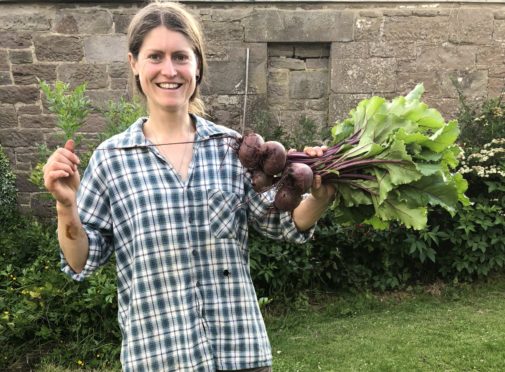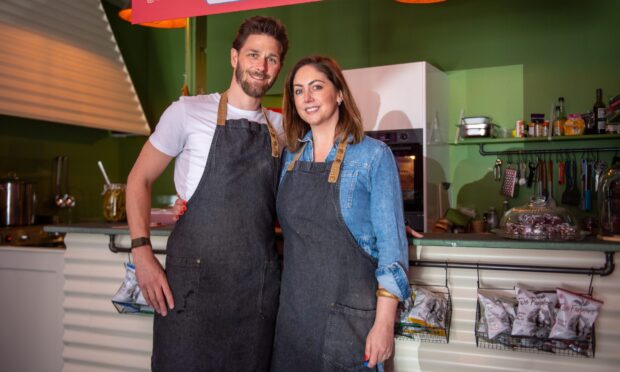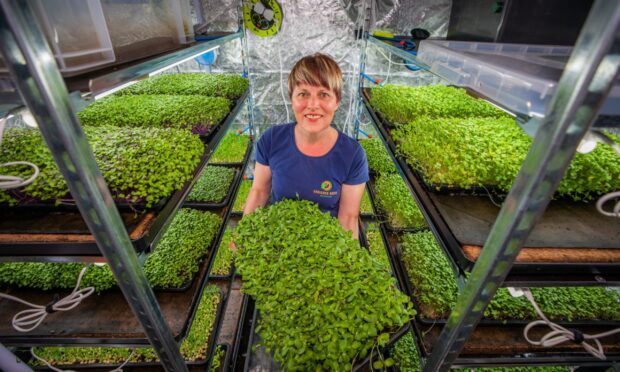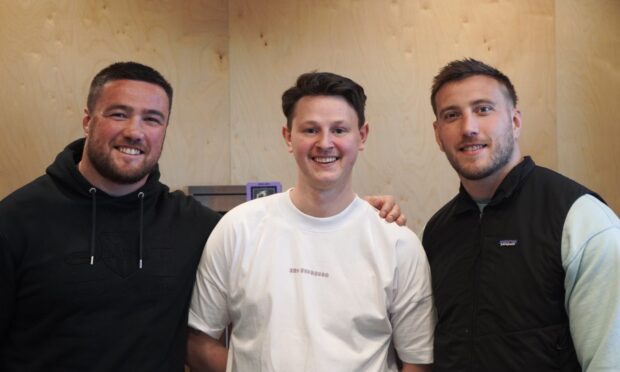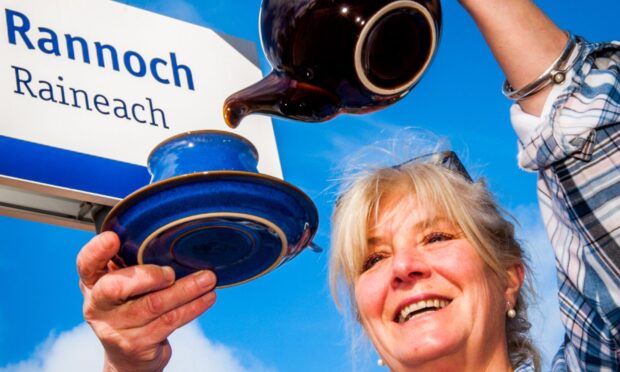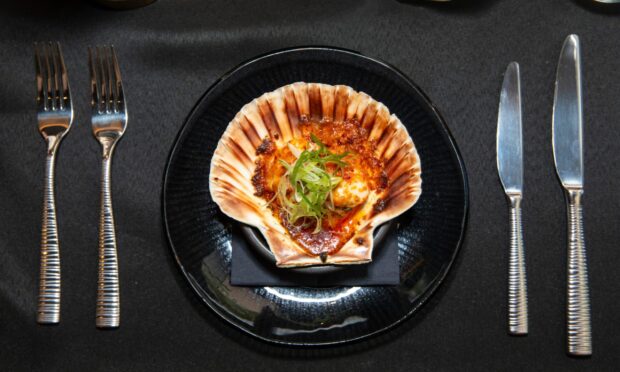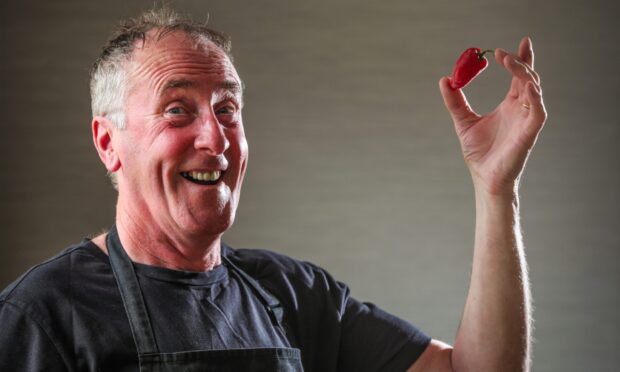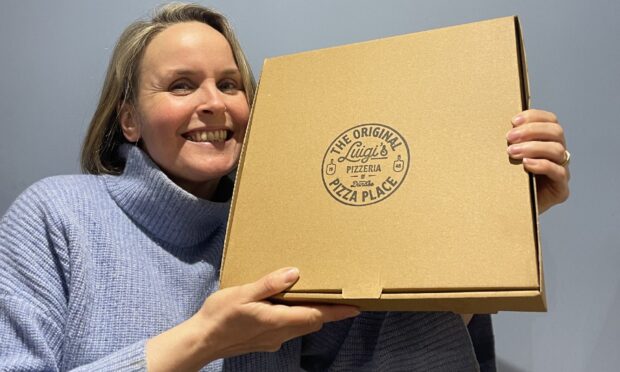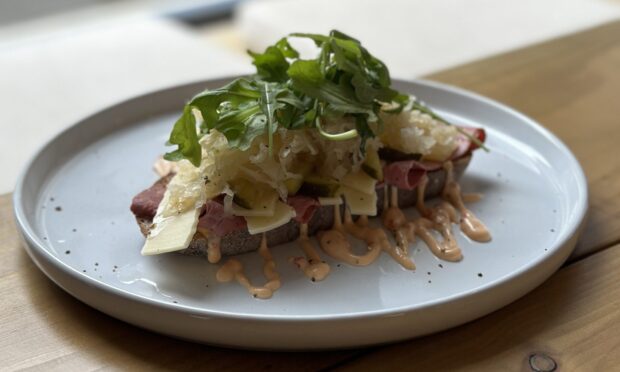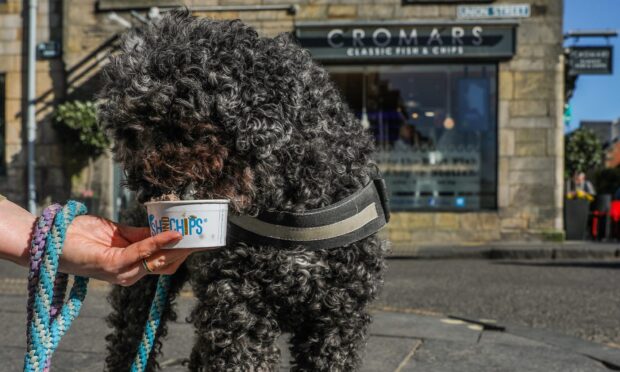Coming from a farming background, it’s no surprise that Kirstin Lamotte runs a market garden, where she can indulge her love of planting and growing.
“I run Guardswell Grows, a small scale market garden and farm in the Carse of Gowrie between Perth and Dundee,” says Kirstin.
“My granddad, Robert, ran a dairy farm here at Waterybutts Farm, Grange, which he later diversified into a herb farm with my mum, Fiona Lamotte. This became Scotherbs, the farm I grew up on, and was in my family until 2013.”
Kirstin’s choice of course at Strathclyde University – product design and innovation – turned out to be a good move.
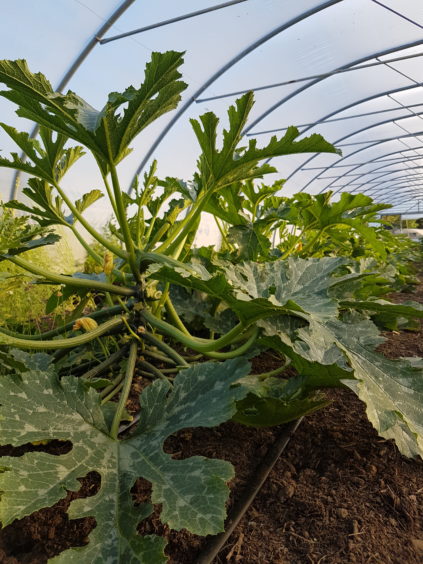
“Surprisingly, product design can be very helpful in farming, trying to come up with better and more efficient ways to do things,” she says.
Two seasons of working on a four-acre organic vegetable farm in British Columbia taught her a lot about vegetable growing and organic principles.
“After returning from Canada, all I wanted to do was grow good food,” she smiles. “I have been very fortunate that there was land and equipment – along with a large glasshouse – that was no longer in use from the Scotherbs days, which meant I was able to get started with Guardswell Grows.
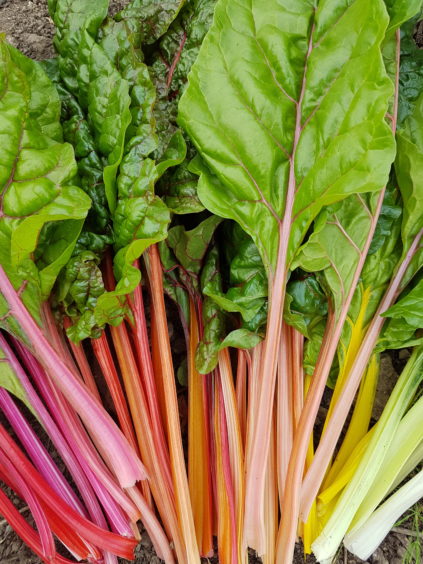
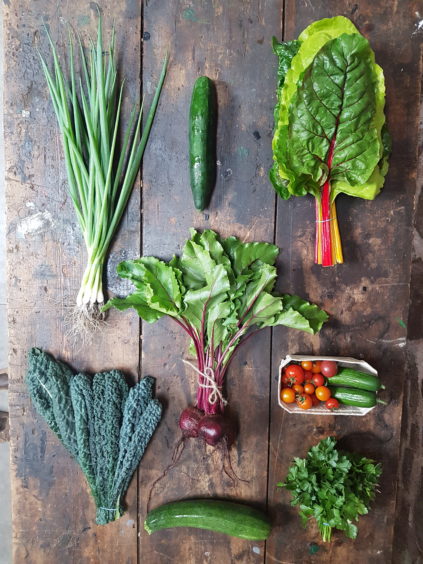
Growing chemical-free food on around one acre at two sites – Guardswell Farm, Kinnaird and Waterybutts Farm, Grange – Guardswell Grows started alongside the already established Guardswell Farm, which holds rural events, courses and countryside accommodation.
Although Kirstin runs Guardswell Grows pretty much on her own, she admits: “But I have been very lucky to have helping hands from family, friends and some amazing volunteers, particularly when the bigger jobs take place, such as moving 20 tonnes of compost by shovel and wheel barrow!”
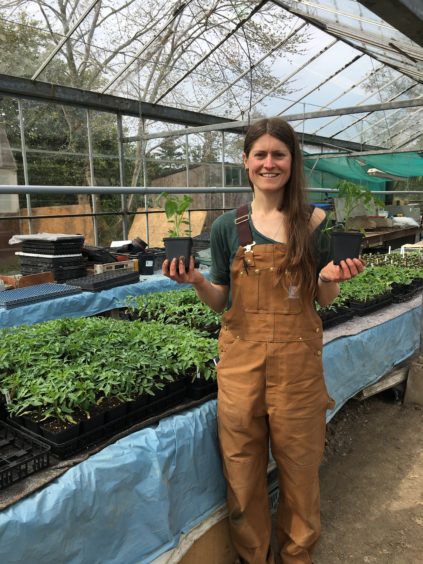
Growing a variety of crops including aubergines, cucumbers, padron pepper, broccoli, kale, chard, salad, beetroot, beans, spring onions to name but a few, as well as 22 varieties of tomatoes, Kirstin implements organic principles like planting cover crops, crop rotation, building the soil through compost and manure.
“We are also growing some crops in no-dig beds, which disturbs the soil less,” she says. “We care for the soil, as good soil health is the best way to good quality crops.”
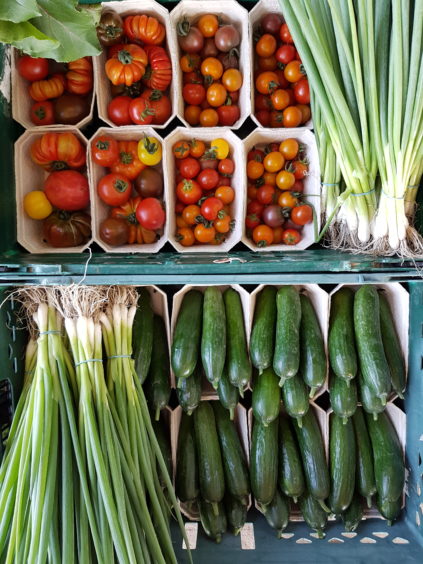
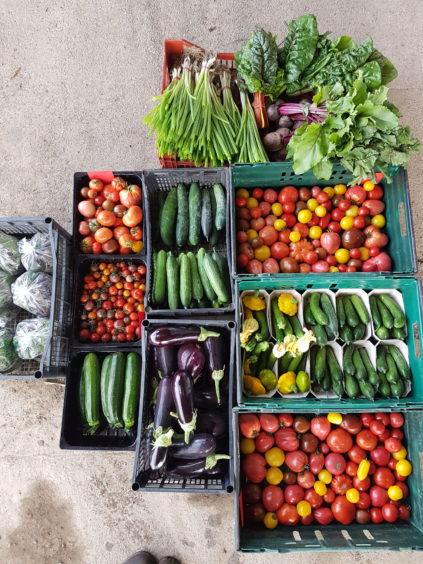
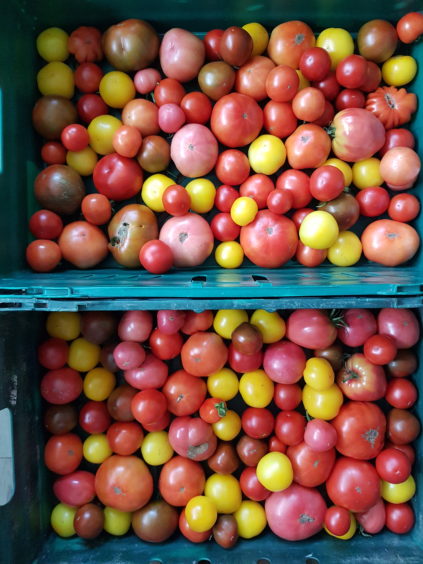
The coronavirus crisis has brought about a massive increase in people’s interest in where their food comes from and this has meant that the demand for Guardswell Grows produce has increased massively.
“People are so interested in local food and this could be a big change for our food system,” says Kirstin.
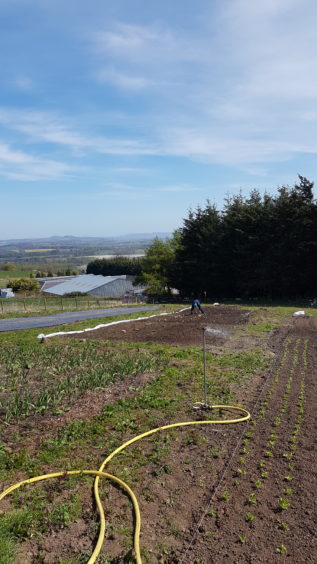
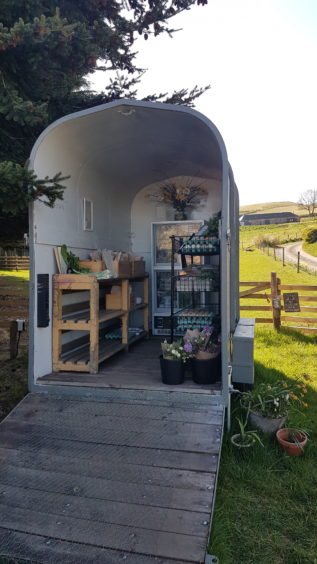
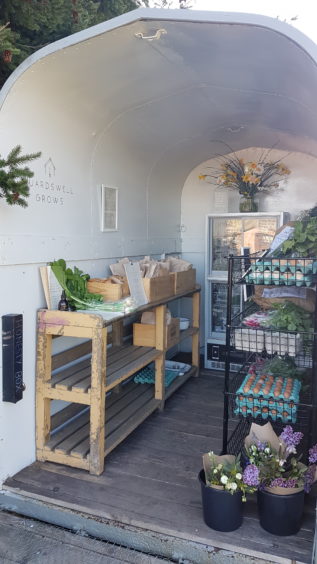
“We have added more numbers to our veg box scheme this year and have found that because of coronavirus we are selling a lot more produce out of our farmstand.
“We have added in Covid-19 precautions to the farmstand – one person in at one time, everything is bagged to ensure less contact, we have hand sanitiser at the door, and there is no person to person contact.
“I am feeling very lucky that my job is still a necessity and means I am outside a lot – I know that for a lot of people it isn’t as easy.”
Kirstin reveals that as she is fairly new to running her own farm and growing a big variety of crops, she can make mistakes while learning all the time.
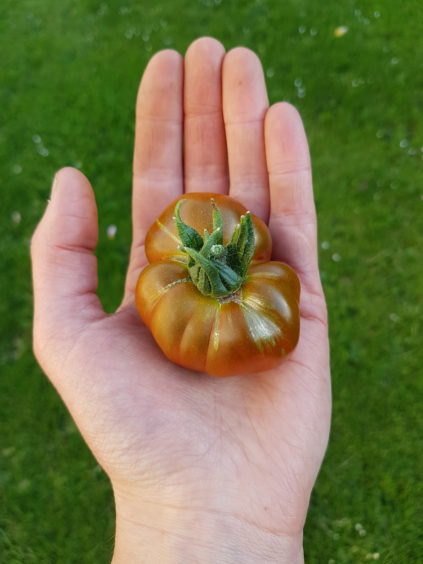
“Having to learn about all different crops, the way they like to grow and growing them happily with nature can be tricky – but it keeps things interesting too,” she says.
“Working with nature can always be difficult as you rely on the weather and the natural world to work with you.
“Farming chemical free means I am trying to care for the natural environment. There have been times when I walk into the polytunnel and there are massive amounts of aphids (tiny sap sucking bugs) on the plants because I don’t use any chemicals.
“Aphids will eventually kill the plant but I have just left the aphid-covered plants and come back to find loads of ladybirds and ladybird larvae on the plants, who eat the aphids.
“This is just one example of nature working well if you let it,” she smiles.
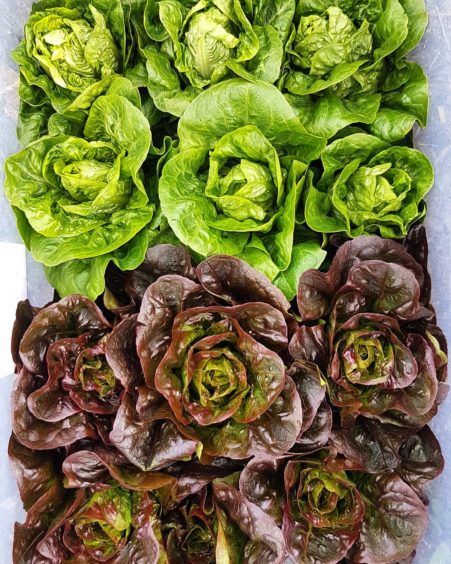
Kirstin believes the range of produce we grow in Scotland is amazing and should be celebrated.
“If we buy produce from our local area it is likely to be fresher, and often therefore more flavourful and nutritious. And of course it has not travelled as far, meaning it is much better for our planet,” she says.
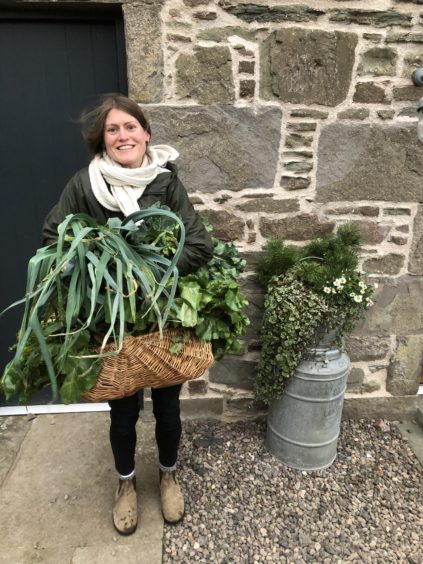
“Hopefully once things return to ‘normal’ people will continue to show an interest in how food is produced, where it comes from and support their local farmers.”
